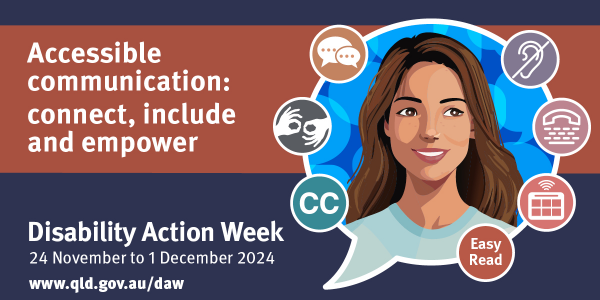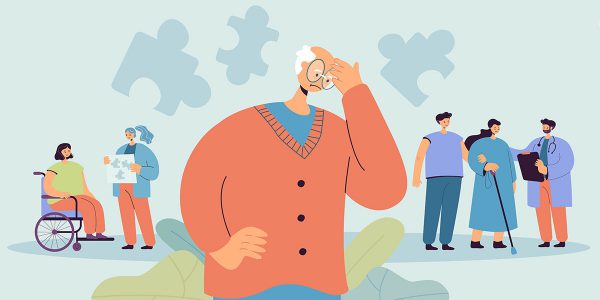Does hearing loss cause dementia?

This article was originally published in September 2021 and has been updated with additional research and information every year since. In April 2024, we added a Hearing Tracker video with a panel discussing current research and what it means. In September 2024 we updated the article with the latest relevant research. We also highlighted the retraction of a previous major study.
Reality or fear-mongering?
Over recent years, more and more media coverage has been seen talking about the link between hearing loss and dementia. Some hearing aid providers even promote their devices based on this media coverage.
Understandably, this can provoke fear or anxiety that if you don’t get hearing aids, you may develop dementia.
But what does the research say, and why is there an increased focus on this link in recent times?
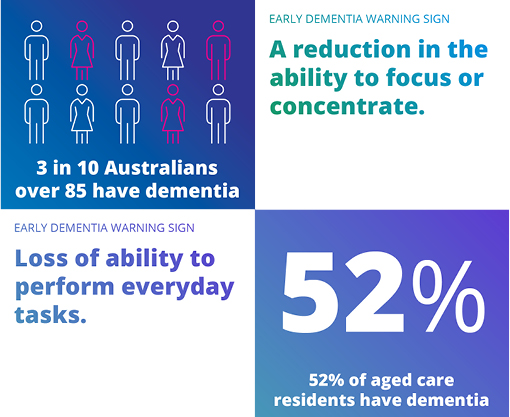
What is dementia?
Before we begin, it’s good to understand what dementia is and isn’t. Dementia is not a specific disease, but several diseases can cause dementia, including Alzheimer’s – the most common cause of progressive dementia.
Dementia is a general term describing symptoms affecting brain function, including your memory, ability to think, and the ability for social interaction.
You may be surprised and horrified to know that end-stage dementia is one of the leading causes of death in the Australian population.
According to Dementia Australia, in 2024, more than 421,000 Australians are living with dementia. That number is expected to increase to almost 812,000 by 2054 unless a medical breakthrough is discovered.
Dementia in Australia
- Dementia is the second leading cause of death of all Australians, and provisional data shows that dementia will likely soon be the leading cause of death.
- Dementia is the leading cause of death for women.
- In 2024, it is estimated there are more than 29,000 people with younger onset dementia, and this is expected to rise to more than 41,000 people by 2054. This can include people in their 30s, 40s and 50s.
- In 2024, it is estimated that more than 1.6 million people in Australia are involved in the care of someone living with dementia.
- 2 in 3 people with dementia are thought to be living in the community.
- Over two-thirds (68.1%) of aged care residents have moderate to severe cognitive impairment.
Dementia around the world
In March 2023 the World Health Organisation published the following key facts:
- Currently more than 55 million people have dementia worldwide, over 60% of whom live in low-and middle-income countries. Every year, there are nearly 10 million new cases.
- Dementia results from a variety of diseases and injuries that affect the brain. Alzheimer disease is the most common form of dementia and may contribute to 60–70% of cases.
- Dementia is currently the seventh leading cause of death and one of the major causes of disability and dependency among older people globally.
- In 2019, dementia cost economies globally 1.3 trillion US dollars, approximately 50% of these costs are attributable to care provided by informal carers (e.g. family members and close friends), who provide on average 5 hours of care and supervision per day.
- Women are disproportionately affected by dementia, both directly and indirectly. Women experience higher disability-adjusted life years and mortality due to dementia, but also provide 70% of care hours for people living with dementia.
What are the early symptoms of dementia?
Dementia symptoms start subtly and can be hard to spot initially. Watch for the signs below to recognise dementia as early as possible.
- Progressive and frequent memory loss, especially related to recent events
- Signs of confusion increasing over time
- Personality or behavioural changes
- A reduction in the ability to focus or concentrate
- Apathy, withdrawal or depression
- Loss of ability to perform everyday tasks.
Remember that displaying some or all these symptoms may not necessarily indicate dementia, but it is best to investigate and identify the causes as early as possible.
What causes dementia?
Since dementia is not a specific disease, the symptoms of dementia can be caused by several different disorders, the most common of which is Alzheimer’s disease.
Other causes include:
- Vascular dementia
- Parkinson’s disease. Dementia is common in people with this condition.
- Dementia with Lewy bodies
- Frontotemporal dementia
- Severe head injury
- Huntington’s disease
- Leukoencephalopathies
- Creutzfeldt-Jakob disease
- Some cases of multiple sclerosis (MS) or amyotrophic lateral sclerosis (ALS).
- Multiple-system atrophy
- Infections such as late-stage syphilis
- Inherited dementia
It’s important to remember there are several causes of dementia, and depending on the cause, some symptoms may be reversible.
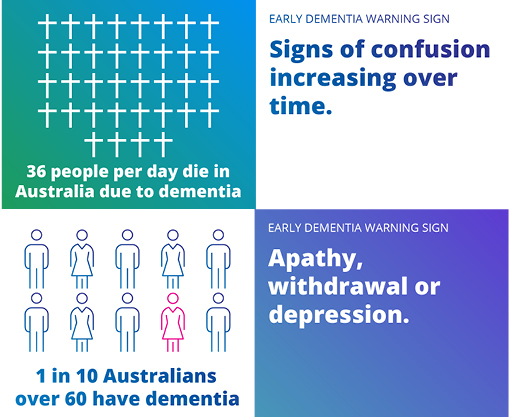
The link between hearing loss and dementia
Looking at the causes above, we don’t see ‘hearing loss’ listed explicitly as a cause of dementia. So how has hearing loss been connected to dementia, and why are some organisations touting hearing loss treatment as a preventative measure for dementia?
While a tenuous link between hearing loss and dementia was suggested as far back as the late 1980s, it was a 2020 report in The Lancet that really put the link in the spotlight.
The document Dementia prevention, intervention, and care: 2020 report of the Lancet Commission highlighted 12 things (risk factors) that people could modify that might prevent or delay up to 40% of dementias.
One of those things was encouraging hearing aid use for hearing loss and reducing hearing loss by avoiding excessive noise exposure.
This key message was reported by media organisations worldwide and picked up and amplified by hearing aid manufacturers and resellers.
Before we go any further, it is important to understand that this risk factor was just one of many that could potentially reduce the likelihood of developing dementia over time. The researchers also identified at what life-stage risks should be addressed to have the most significant impact on dementia outcomes.
These modifiable risk factors and life-stages are:
- Attain a high level of education (Early Life)
- Treat hearing impairment (Midlife)
- Minimise diabetes (Later life)
- Treat hypertension (Midlife)
- Prevent head injury (Midlife
- Reduce midlife obesity (Midlife)
- Avoid excessive alcohol (Midlife)
- Stop smoking (Later life)
- Reduce air pollution (Later life)
- Maintain frequent exercise (Later life)
- Reduce the occurrence of depression (Later life)
- Maintain regular social contact (Later life)
While treating hearing impairment is just one of the 12 modifiable risk factors, it was ranked as the highest modifiable risk out of the 12 at 8%. The next closest was smoking at 5%.
If all risks were modified or eliminated, it could reduce the risk of dementia by 40%.
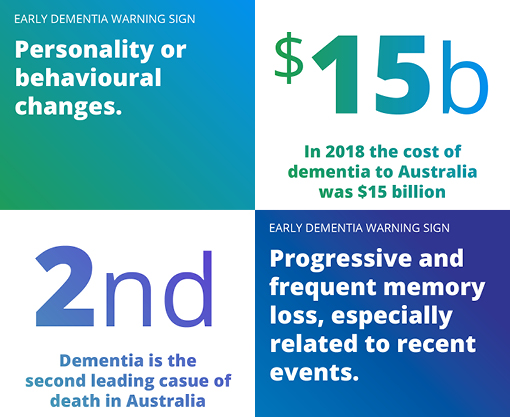
What does research about dementia and hearing loss actually say?
Research has come to light that is strong enough for the writers of the Lancet report to include hearing loss as one of the risks for dementia. And what was once a tenuous link appears to be getting stronger and stronger.
Notable research for 2024
In January 2024 Science Daily published research from the University of Southern Denmark showing featuring data from 573,088 people. Researchers at the university claim to have found a link between hearing loss and the development of dementia.
The study Is a so-called cohort study that follows a group of people with common characteristics over a longer period of time. In this study, all of the people were above 50 years of age and from the Region of Southern Denmark between 2003-2017. People diagnosed with dementia before the commencement of the study were excluded. The researchers compared data on people’s hearing with data on the development of dementia during the period. The researchers have found a significant – that is, clear – correlation between hearing loss and the development of dementia.
In a review of cohort studies, published in ScienceDirect, researchers looked at 50 studies involving over 1.5 million people. The review of the studies showed that hearing loss in adulthood is a risk factor for dementia. It increases the likelihood of developing cognitive issues, including dementia and Alzheimer’s disease. For every 10-decibel decrease in hearing, the risk of dementia rises by 16%. This effect is consistent regardless of the type of dementia or other factors.
Another study from 2024 published in Nature Aging, is the first we have seen showing a direct connection between hearing loss and cognitive impairment – albeit in mice.
The study linked hearing loss with a higher risk of Alzheimer’s disease (AD), but how it triggers the disease isn’t well understood. Researchers found that hearing loss worsens cognitive problems in both normal mice and those engineered to model AD. A protein called GDF1, which is important for brain function, is reduced in deaf mice. When GDF1 levels were restored, cognitive decline improved, even in mice with Alzheimer’s. GDF1 helps protect brain cells by stopping harmful processes linked to AD. This research suggests that boosting GDF1 could be a new way to treat or prevent Alzheimer’s.
Closer to home we are excited to see the commencement of a two-year randomised control trial into hearing loss and dementia.
The trial, being conducted by Ear Science Institute of Australia, will investigate whether the correction of hearing loss using hearing aids could decrease the 12-month rate of cognitive decline among older adults at risk of dementia. 180 older adults with hearing loss and mild cognitive impairment were recruited to undertake the study and we look forward to the results when they become available.
We are also starting to see an increasing prevalence of Young-Onset Dementia (dementia diagnosed in people under 65), and more research is being focused on this cohort.
In late 2023 JAMA Neurology published a study highlighting key factors associated with young-onset dementia (YOD), which affects people under the age of 65. Key findings included several risk factors, such as heart disease, strokes, alcohol use disorder, and certain genetic mutations. The study found that lifestyle factors, like being socially isolated and having low vitamin D levels, also play a role. In men, diabetes was particularly linked to YOD, as well as depression, lower education levels, and, importantly, hearing loss.
Previously mentioned research
A 2023 study from the Johns Hopkins Bloomberg School of Public Health revealed that older adults with more severe hearing loss have a higher likelihood of dementia; however, the study also found that dementia risk is lower among hearing aid users compared to non-users.
This nationally representative study analysed data from over 2,400 older adults and aligns with previous research indicating a potential link between hearing loss and dementia risk over time.
While the study does state the importance of addressing hearing loss as a public health issue and suggests that treating hearing loss could contribute to lowering the risk of dementia, it uses qualifying language like “may” or “might” when talking about whether it is hearing loss that is the cause of dementia.
A 2022 study of over 382,000 participants in Korea found that for those over 65 with severe or profound hearing loss, the likelihood of getting dementia increased by 1.3 times.
Their results showed that for those under 65, with severe or profound hearing loss, the risk was greater at 1.6 to almost two times the likelihood of developing dementia.
In a review and analysis of research studies related to the link between dementia and hearing loss carried out in 2018, researchers found “age-related hearing loss was significantly associated with decline in all main cognitive domains and with increased risk for cognitive impairment and incident dementia.”
The researchers analysed 36 different studies and over 20,000 unique participants and found the studies confirmed that age-related hearing loss is a possible modifiable risk factor for cognitive decline.
Another study in the UK published in 2021 looked at the association between speech-in-noise (SiN) hearing impairment and the increased risk of incident dementia.
This study was an interesting deviation from other research as studies have previously focused on pure-tone audiometry for measuring hearing loss associated with dementia. People who suffer from a speech-in-noise impairment may present as normal hearing when tested using just pure-tone tests.
The study looked at over 82,000 dementia-free patients 60 years or older. Over 11 years, researchers followed these participants and, by the end of the study, concluded that out of the 1,285 participants who developed dementia, 61% had an increased risk of dementia due to SiN hearing loss.
They stated: “SiN hearing impairment is independently associated with incident dementia, providing further evidence for hearing impairment as a potential modifiable dementia risk factor.”
These are just a few of the studies highlighting the association between untreated hearing loss and the incidence of dementia. A quick Google search for scholarly articles on “hearing loss and dementia” brings up over 239,000 results up from 157,000 in 2021.
Retracted research
In previous years we have referred to an article published in the Lancet in April 2023, which found that people with hearing loss and no hearing aids were found to have a 42% higher risk of dementia compared to those without hearing loss.
However, this study has since been retracted as data for people with hearing loss using hearing aids and with hearing loss without using hearing aids were switched, leading to errors in their analysis which render the findings and conclusions false and misleading.
Does this retraction change anything? Not really. While that study may have been retracted there are many more that show the correlation between hearing loss and dementia and we have listed some of them above and more below.
As stated by Professor Kaarin Anstey, director of the UNSW Ageing Futures Institute and lead of the Brain Health and Dementia Centre at NeuRA, it does not – but it’s important to understand the context.
“There is consistent evidence that people with hearing loss are at increased risk of dementia and this article retraction does not change this,” Professor Anstey explained. “Therefore we still support inclusion of hearing loss in risk assessments.”
Associate Professor Michael Woodward, who is honorary medical advisor at Dementia Australia and Director of Dementia Research at Austin Health, has also stated that it remains important to assess for and treat hearing loss.
“My advice to GPs would be to detect and address hearing loss as it is clearly a risk factor for dementia. And it may be as simple as removing impacted wax – but do not fear hearing aids if needed – indeed, encourage your patients to wear them (older men are particularly notorious for leaving them out),” he said.
Correlation vs Causation
While new research is continuously being added to the cannon of information we have on dementia and hearing loss, we still have to be careful with our interpretations.
There certainly appears to be a correlation between hearing loss and dementia, researchers are still pointing out that we still don’t know if correlation equals causation in this case. Even the original Lancet report was hesitant, stating only that: “Hearing loss might result in cognitive decline through reduced cognitive stimulation.”
While it is much harder to prove causality in human subjects, some research has been conducted in animal subjects that shows a relationship between induction of hearing loss and cognitive decline. However, the researchers were not willing to state that the hearing loss was the sole cause of the cognitive decline or enough to trigger an ongoing degenerative process such as Alzheimer’s.
In April 2024, Hearing Tracker released a great video discussing these findings and what it actually means. It’s an easily digestible message you can view below.
What do we know?
As in 2023, in 2024 we are still looking for the study or research that will comprehensively show that a causal link exists between hearing loss and dementia. We are still waiting.
We know there is a stronger and stronger correlation between hearing loss and dementia. Some studies show that this correlation is more substantial depending on the severity of the hearing loss and the age at which it presented itself.
We also know that, along with treating hearing loss, other modifiable risks, like social interaction and depression, can also be affected by hearing loss. It has long been established by studies of people suffering from hearing loss that untreated hearing loss can lead to greater social isolation and depression.
So, in effect, this means that by diagnosing and treating hearing loss early, we can effectively help modify three of the risk behaviours listed in the 2020 Lancet report. These three risk factors alone accounted for 16% of the 40% increased risk attributed to the 12 risk factors identified above.
Hearing aids and dementia
Here’s what we also know thanks to the 2020 Lancet report mentioned previously:
- A 25-year study of 3,777 people aged 65 years or older found increased dementia incidence in those with self-reported hearing problems except in those using hearing aids.
- Another study found hearing loss was only associated with worse cognition in those not using hearing aids.
- A survey of 2040 people older than 50 years, tested every two years for 18 years, found immediate and delayed recall deteriorated less after initiation of hearing aid use, adjusting for other risk factors.
- Hearing aid use was the largest factor protecting from decline.
The Lancet researchers stated that the long follow-up times in these prospective studies suggest hearing aid use is protective, rather than the possibility that those developing dementia are less likely to use hearing aids.
In a new study, published in 2022, researchers in Japan found that regular hearing aid use may have a protective effect on cognitive impairment in those with moderate hearing loss. This finding came from a study of 1163 people with hearing loss over the age of 60.
They also found that hearing level remained a primary risk factor for cognitive impairment among elders with hearing loss after adjusting for several confounding factors.
In another study published in January 2022, researchers analysed the New York Statewide Planning and Research Cooperative System (SPARCS) database for links between hearing loss and dementia.
SPARCS collects patient-level detail on patient characteristics, diagnoses and treatments, services, and charges for each hospital inpatient stay and outpatient (ambulatory surgery, emergency department, and outpatient services) visit; and each ambulatory surgery and outpatient services visit to a hospital extension clinic and diagnostic and treatment center licensed to provide ambulatory surgery services.
The researchers looked at data from 2007 to 2017, which included over 206,000 people over the age of 60 – 56,523 with hearing loss and 150,278 without.
Their findings: hearing loss diagnosis was associated with an increased risk of incident dementia based on the data contained in SPARCS. Individuals with a more established diagnosis of hearing loss (eg more hearing loss claims) demonstrated an increased hazard ratio.
What would we recommend?
In 2021, we said there was enough evidence to show the benefits of treating hearing loss in relation to the risk factors of dementia.
Over the past three years additional studies have added more weight to this argument. These were not small sample studies either, adding gravitas to the findings.
As always, add to that the benefit better hearing can give to the overall quality of life, and the case is even clearer.
As Frank Lin, M.D., Ph.D. from John Hopkins says: “Brain scans show us that hearing loss may contribute to a faster rate of atrophy in the brain. Hearing loss also contributes to social isolation. You may not want to be with people as much, and when you are you may not engage in conversation as much. These factors may contribute to dementia.”
Irrespective of whether or not we have the final word on causal linkages, we would encourage anyone to seek testing and treatment for hearing loss the moment they (or their family members) realise that their hearing is not as good as it has been.
There are only positives to be had.
The Australian Government provides free testing and quality hearing devices to eligible pensioners through its Hearing Services Program. The program is delivered by thousands of audiologists throughout the country, so you can find one you trust close to you.
If you are not an eligible pensioner and your hearing loss is severe enough, you may qualify for NDIS funding.
Failing that, and you do not have the ability to afford hearing aids, BHA offers the Hearing Access Program, which helps people access lower-cost, refurbished quality hearing devices.
Want More Hearing Loss News and Information?
Stay informed and connected by subscribing to our monthly newsletter. You’ll receive the latest insights on hearing loss, community updates, and exclusive content tailored for the hearing loss community in Queensland. Don’t miss out—subscribe now.
